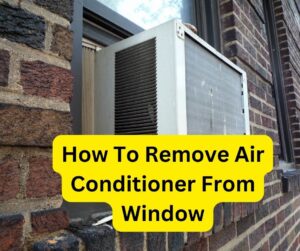Have you ever wondered, “How many hours should your AC run per day?” It’s a common question for homeowners looking to strike the right balance between comfort and energy efficiency. Your air conditioning unit is a lifeline during scorching summer days, and understanding its operational hours is essential for both your comfort and the health of your cooling system. In this article, we’ll delve into the details, providing you with a clear understanding of how long your AC should ideally run each day, and what to watch out for in case it seems to be working overtime. Stay connected with us for all the information you need to keep your home cool and your AC system running efficiently.
How Many Hours Should Ac Run Per Day

How Long Should AC Run During Normal Conditions?
Understanding how long your air conditioner should run during typical conditions is crucial for maintaining a comfortable and energy-efficient indoor environment. While there’s no one-size-fits-all answer to this question, we can provide some general guidelines to help you gauge if your AC is operating optimally.
- Certainly, here are the factors influencing how long your AC should run, presented with separate headings:Temperature Setting
- The runtime of your AC depends on the temperature you set on your thermostat. On average, during the hottest summer days, your air conditioner should run for about 12 to 16 hours per day when it’s correctly sized for your space. However, this can vary based on your preferred indoor temperature.
Climate
- Climate plays a significant role in determining how long your AC runs. In hotter and more humid regions, your AC may need to run longer to maintain the desired indoor temperature. Conversely, in milder climates, it may run for shorter periods.
Insulation and Sealing
- The quality of insulation in your home and the tightness of seals around doors and windows impact how long your AC runs. A well-insulated and tightly sealed home requires less cooling time compared to a less efficient space.
Thermostat Settings
- Programmable thermostats can help optimize AC runtime by adjusting temperature settings during periods when you’re away or asleep. This reduces unnecessary cooling, saving energy and money.
Maintenance
- Regular maintenance, such as cleaning or replacing filters, ensures your AC operates efficiently. A dirty or clogged filter can cause the system to run longer to reach the desired temperature.
Size of the AC Unit
- A correctly sized AC unit is essential. An oversized unit may cool your space quickly but cycle on and off frequently, reducing efficiency. An undersized unit may run continuously, struggling to maintain the desired temperature.
Humidity Levels
- AC units also remove humidity from the air. In high-humidity areas, your AC may run longer to maintain comfort by reducing moisture levels.
Personal Comfort
- Ultimately, the ideal runtime depends on your personal comfort preferences. Some individuals prefer cooler indoor temperatures and may run their AC longer, while others are comfortable with slightly higher temperatures.
What if My AC Won’t Stop Running?
If your air conditioner seems to be working overtime and won’t stop running, it’s essential to address the issue promptly to prevent potential damage to your system and keep your energy bills in check. Here are some steps to take if your AC won’t shut off:
- Certainly, here are the steps and considerations for addressing an AC unit that won’t stop running, presented with separate headings:Check the Thermostat
- Start by examining your thermostat settings. Ensure it’s set to your desired temperature and the fan is set to “auto” rather than “on.” If the fan is set to “on,” the blower will run continuously, even when the cooling cycle isn’t active.
Replace or Clean the Air Filter
- A dirty or clogged air filter can restrict airflow, causing your AC to run longer to reach the set temperature. Regularly replacing or cleaning the filter can help maintain efficiency.
Inspect for Air Leaks
- Check for any gaps or leaks around doors and windows in your home. If warm air is infiltrating your space, your AC will work harder to maintain the desired temperature.
Evaluate Insulation
- Poor insulation can make it challenging to cool your home efficiently. Inspect your insulation, particularly in the attic and walls, and consider adding or upgrading insulation where needed.
Consider the System Size
- An oversized AC unit can lead to short cycling, where the system turns on and off frequently. Consult with an HVAC professional to determine if your AC is appropriately sized for your home.
Examine the Evaporator and Condenser Coils
- Dirty or clogged coils can reduce your AC’s efficiency. Regular maintenance, including cleaning or coil replacement, can help resolve this issue.
Refrigerant Levels
- Low refrigerant levels can lead to your AC running longer without adequately cooling your space. A refrigerant leak requires professional repair and recharging.
Programmable Thermostat
- Consider investing in a programmable thermostat that allows you to schedule temperature changes based on your daily routine. This can help prevent the AC from running unnecessarily.
Professional Inspection
- If you’ve tried the above steps and your AC still won’t stop running, it’s time to consult with an HVAC technician. They can diagnose and address more complex issues like a malfunctioning thermostat, faulty compressor, or electrical problems.
FAQ:
Question : How many hours should my AC run per day during summer?
Answer: The ideal runtime of your AC during summer can vary based on factors like temperature settings, insulation, and climate. On average, it’s normal for an AC to run for about 12 to 16 hours per day during hot weather when properly sized for your space.
Question : Can my AC run for longer hours on extremely hot days?
Answer: Yes, on exceptionally hot days, it’s not uncommon for your AC to run for 20 hours or more, especially in regions with extreme heat. This extended runtime is necessary to maintain a comfortable indoor temperature.
Question : What role does climate play in determining AC runtime?
Answer: Climate has a significant impact on AC runtime. In hotter and more humid regions, your AC may need to run longer to combat the heat and humidity, while in milder climates, it may run for shorter periods.
Question : How can I reduce AC runtime and save energy?
Answer: To reduce AC runtime and save energy, consider upgrading insulation, sealing gaps and leaks, using a programmable thermostat, and scheduling temperature setbacks during periods of inactivity.
Question : What happens if my AC runs continuously without stopping?
Answer: If your AC runs continuously without stopping, it may indicate issues like a dirty filter, refrigerant problems, thermostat malfunctions, or an oversized unit. It’s essential to address these issues promptly to prevent damage to your system.
Question : Is it normal for my AC to run even when it reaches the desired temperature?
Answer: No, once your AC reaches the set temperature, it should cycle off. If your AC continues to run, it may be due to thermostat issues, inadequate insulation, or other factors that should be inspected and resolved by a professional HVAC technician.
Conclusion:
Determining how many hours your AC should run per day is not a one-size-fits-all answer. It depends on various factors, including your climate, insulation, thermostat settings, and personal comfort preferences. On average, 12 to 16 hours per day during hot summer weather is considered normal for a well-sized AC unit. However, it’s crucial to strike the right balance between comfort and energy efficiency. Regular maintenance, insulation improvements, and smart thermostat usage can help optimize AC runtime while keeping your indoor space cool and energy bills manageable. If you ever find your AC running excessively or not enough, consider consulting with an HVAC professional to ensure your system is operating at its best.



